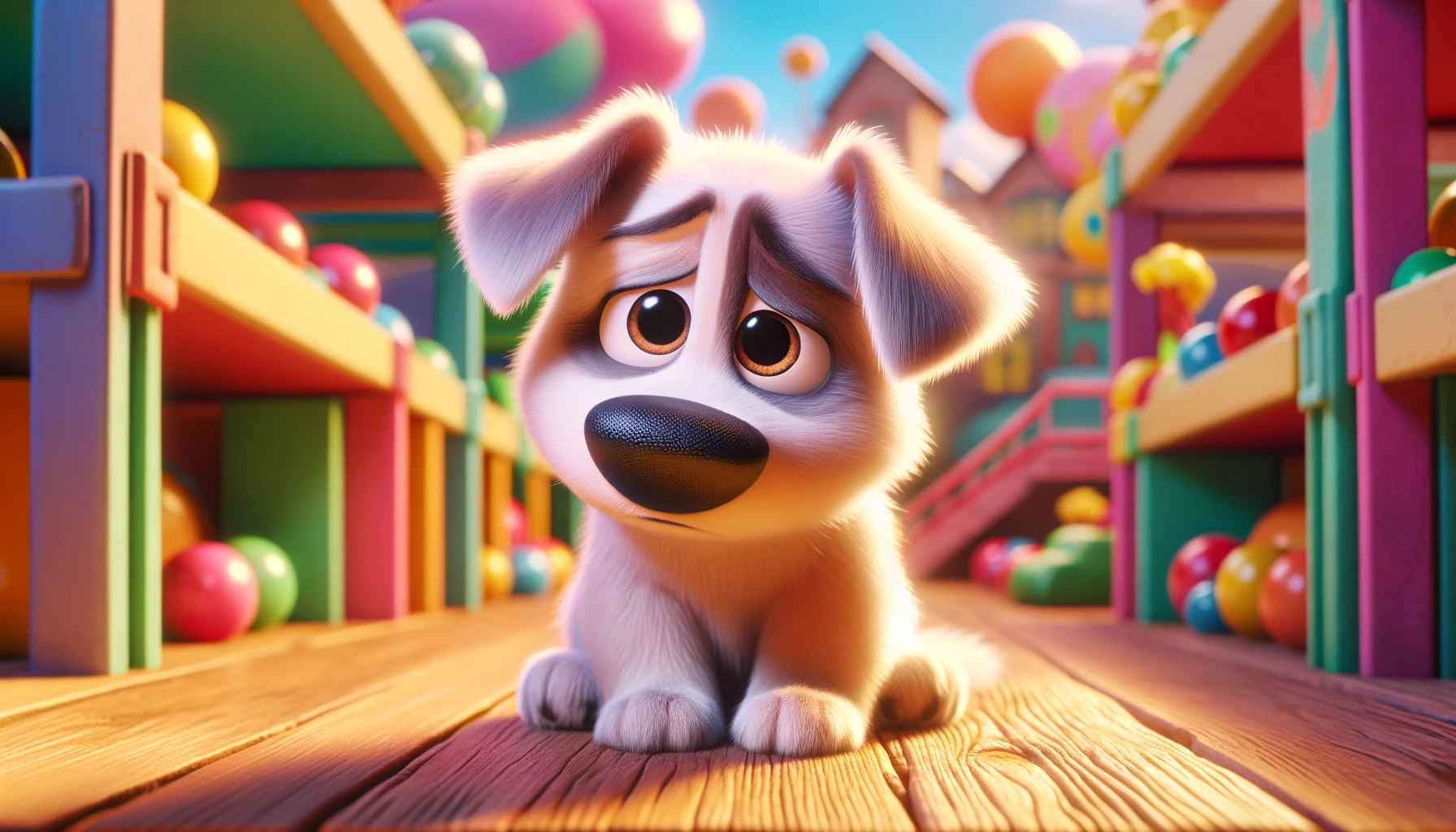Whether you’re already fluent in colorful figures of speech or are just beginning your adventures in quirky lingo, we’ll explore all you need to know about the snappy phrase hangdog air.
From its origins to examples in modern contexts, we’ll cover how people use it to paint verbal pictures of dejection.
So settle in like a sad pup, and let’s dig in!
Table of Contents
Key Takeaways
| Key Takeaways | Description |
| Meaning of Hangdog Air | Describes a dejected or melancholy appearance, similar to a downcast dog, conveying sadness or defeat. |
| Origins of the Idiom | Emerged in the early 16th century, possibly from the literal hanging of dogs for misdeeds or from their downtrodden appearance while sniffing. |
| Usage and Synonyms | Used to vividly describe someone’s dispirited demeanor. Synonyms include “down in the mouth” and “with tail between the legs,” among others. |
What Does Hangdog Air Mean?
Hangdog air refers to a sadly dejected, melancholy, or dispirited manner or appearance, especially with head bowed down and shoulders drooping like a dog that has been punished or is in low spirits. The idiomatic phrase conveys a sense of being miserable, woebegone, and defeated in aspect or mood.
You’ve likely seen a pooch with droopy ears, eyes cast down, and tail between its legs. This sorrowful stance inspired “hangdog air” as a descriptor for a similarly dispirited bearing in people. It paints a visage of pouty melancholy – a human wallflower at the ball.
But context offers nuance. At times, “hangdog” evokes gentle, humble submission. Other instances call to mind exasperated deflation from harsh realities. But whatever the flavor, the idiom always implies a supremely bummed vibe.
So if someone looks “down in the mouth” or wears a perpetual frown, you could say, “Ol’ Fred’s got a seriously hangdog air about him today.” It conjures a defeated aura spat out by life’s lemons.
Captivated by this canine expression? Our article is a treasure trove of dog idioms just waiting to be explored.
Origins of the Idiom Hangdog Air
Now for the juicy backstory on this melancholy metaphor! “Hangdog” first emerged in the early 16th century from a literal meaning. If a dog was “hung” for misdeeds like livestock harassment, its lifeless body would swing from the gallows with a visual embodiment of dejection.
But other theories float about, too, regarding the idiom’s genesis. For example, hound dogs often swivel their heads down in a sniffing stance. When tracking scents, their crinkly faces coupled with dangling ears present prime hangdog visage.
And since medieval canines weren’t regarded warmly as cuddly pets, a street mutt slinking around with tail tucked could easily inspire visions of despair.
But whatever the exact origin, history confirms that “hangdog” became figurative by the 1700s. It morphed into a handy adjective for downcast spirits based on memories of miserable pups.
Using Hangdog Air in a Sentence
Let’s explore some snippets with our melancholy idiom now that we’ve got the background. We’ll see just how effectively “hangdog air” translates dejection from puppies to people:
- After Bobby struck out to lose the baseball game, he assumed a hangdog air and moped back to the dugout.
- Months of writer’s block left Gertrude with a supremely hangdog air – she roamed her study looking woefully lost.
- The sulking child adopted a hangdog air after his mother denied his request for candy before dinner.
- Following the disastrous job interview, Amanda exited the building, projecting a notably hangdog air.
See how “hangdog” injects visions of bowed heads, shrugged shoulders, and slowed steps? It paints a robust portrait of sadness with just two brisk words!
Synonyms and Variations of the Expression Handog Air
Now, let’s explore some sibling sayings that capture a similar essence. These kindred idioms also envision Eeyore energy thanks to the mental image of miserable dogs.
| Expression | Meaning/Context |
| Down in the mouth | Appearing sad, disappointed, or discouraged. |
| Wearing a long face | Showing sadness or displeasure through one’s facial expression. |
| Crestfallen | Dispirited and depressed; showing disappointment or humiliation. |
| With tail between the legs | Exhibiting fear, submission, or shame, similar to a dog’s behavior when scared. |
| Looking sheepish | Appearing embarrassed or ashamed due to a foolish act. |
| Eaten up with guilt | Feeling or appearing consumed by guilt or remorse. |
| In the doldrums | Feeling dejected, low in spirits, or in a state of inactivity. |
| Disheartened | Having lost confidence or enthusiasm; demoralized. |
| Feeling blue | Feeling sad or depressed. |
| In a funk | In a state of depression or avoidance due to disappointment or disinterest. |
So next time someone around you looks sunk in sad thought, try deploying “hangdog air” or one of its kindred idioms! It adds some figurative flavor to describe the dreary scene.
Other Dog Idioms
Of course, hundreds more familiar phrases utilize our furry canine friends. Let’s cover some classics:
| Idiom | Meaning | Example Context |
| Dog days of summer | The hottest, most uncomfortable part of summer. | “With the heat wave hitting, we’re truly in the dog days of summer now.” |
| Barking at the moon | Attempting something impossible or wasting time on fruitless endeavors. | “Arguing with him is like barking at the moon; he’ll never change his mind.” |
| That dog won’t hunt | Something won’t work or isn’t a viable option. | “We can’t cut costs without reducing quality—that dog won’t hunt.” |
| Dog in the fight | A personal stake or involvement in an issue or contest. | “I don’t have a dog in this fight, so I’ll stay out of the decision.” |
| Tail wagging the dog | A situation where a small or insignificant part controls the whole. | “We can’t let minor details dictate our policy; it’s like the tail wagging the dog.” |
So next time you’re “in the doghouse” or “dog-tired,” remember the influence of our four-legged friends on expressions! Their namesake offers endlessly colorful ways to communicate displeasure and fatigue.
Interesting Facts and Stories
We’ll wrap up our adventure through “hangdog” origins with some fascinating historical tidbits:
- Characters in Shakespeare’s plays use “hangdog” to emphasize villain cowards – highlighting 16th-century disdain for street hounds.
- Famed visual artist William Hogarth conveyed both literal and figurative visions of “hangdog” in his satirical paintings. Look for his works portraying the depressed authorities of the day!
- The Grimm Brothers utilized memorable “hangdog” imagery in their 1812 fairy tale “The Dog and the Sparrow.” It depicted canine misery under abusive masters – inspiring empathy from readers toward mistreated animals.
- American novelist Nathaniel Hawthorne often deployed “hangdog” to describe the downtrodden faces of society’s outcasts. He creatively adapted the idiom as social commentary in his fiction writings.
So there you have it, folks – a thorough backgrounder on “hangdog air” from woeful wordsmiths to miserable mutts! Hopefully, now, when you spy someone down on their luck, you can spruce up your speech by detailing their “totally hangdog air.” This little idiom sure packs some pungent punch!
Before You Go…
If you enjoyed digging into the origins and use of “hangdog air,” be sure to check out more canine-inspired idioms:
- Dog’s Breakfast: Find out how this messy metaphor uses our four-legged friends to depict chaos or confusion. Learn the humor behind why disarray earns this impolite nickname.
- Glory Hound: Ever known fame seekers hungry for the spotlight? This timely term applies perfectly to depict those desperate for praise and recognition regardless of achievement quality.
So next time you spot ego-centric showboaters or face befuddling disarray, deploy these snappy sayings!
Our language owes immense color to descriptive phrases coined from man’s best friend.
And you’ll sound smarter than the average cat, knowing the backstory behind each unique expression.

